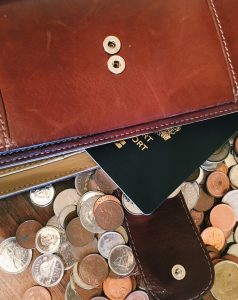The Different Types of Forex Spreads and Which One is Best for You
When it comes to trading forex, one of the most important factors to consider is the spread. The spread is essentially the difference between the bid and ask price of a currency pair. It represents the cost of trading and can have a significant impact on your profitability. In this article, we will explore the different types of forex spreads and discuss which one is best for you.
1. Fixed Spread:
A fixed spread is a constant difference between the bid and ask price. This type of spread is typically offered by market makers who provide liquidity in the forex market. The advantage of a fixed spread is that you know exactly what the cost of trading will be, regardless of market conditions. This can be beneficial for beginners or traders who prefer a predictable trading cost. However, the fixed spread is usually wider than variable spreads, which means you may pay a higher cost for each trade.
2. Variable Spread:
A variable spread, also known as a floating spread, fluctuates based on market conditions. It is determined by the supply and demand for a particular currency pair. When market volatility is low, the spread tends to be tight. Conversely, when market volatility is high, the spread widens. The advantage of a variable spread is that it can be much tighter than a fixed spread, especially during times of high liquidity. This means you can potentially save on trading costs. However, the downside is that the spread can widen significantly during volatile market conditions, which can increase your trading costs.
3. Commission-Based Spread:
Some forex brokers offer a commission-based spread, where you pay a fixed or percentage-based fee per trade instead of a spread. This fee is typically charged in addition to the bid and ask price. The advantage of a commission-based spread is that it can be very tight, especially for high-volume traders. This can result in lower trading costs compared to fixed or variable spreads. However, it’s important to consider the commission fee when calculating the overall cost of each trade. If you trade frequently or with large positions, the commission fee can add up quickly and impact your profitability.
So, which type of spread is best for you?
The answer depends on your trading style, risk tolerance, and trading strategy. If you are a beginner or prefer a predictable trading cost, a fixed spread may be more suitable for you. It provides transparency and allows you to plan your trades accordingly. However, keep in mind that you may pay a higher cost for each trade.
If you are an experienced trader who can handle market volatility, a variable spread may be more advantageous. During times of high liquidity, the spread can be very tight, resulting in lower trading costs. However, you should be prepared for wider spreads during volatile market conditions, as this can increase your trading costs.
If you are a high-volume trader, a commission-based spread may be the best option for you. The tight spreads offered by commission-based accounts can significantly reduce your trading costs, especially if you trade frequently or with large positions. However, it’s important to calculate the commission fee and consider it when evaluating the overall cost of each trade.
In conclusion, the type of forex spread that is best for you depends on your individual preferences, trading style, and risk tolerance. Consider your trading goals and evaluate the pros and cons of each type of spread before making a decision. Remember, trading forex involves risks, and it’s important to choose a spread that aligns with your overall trading strategy.





